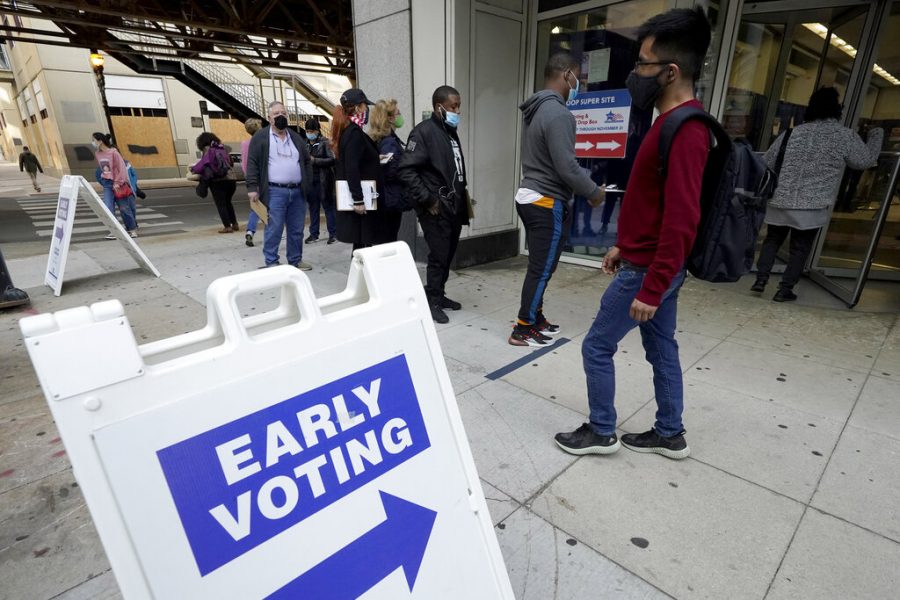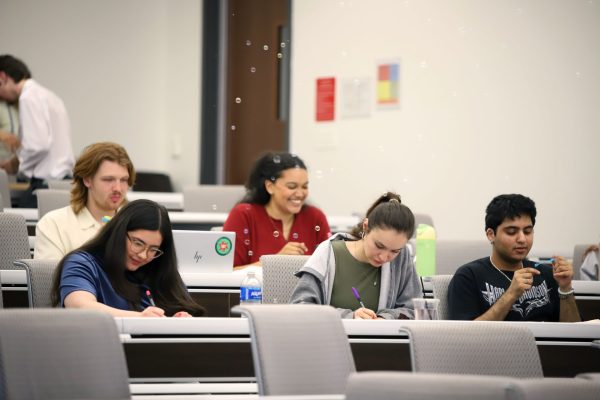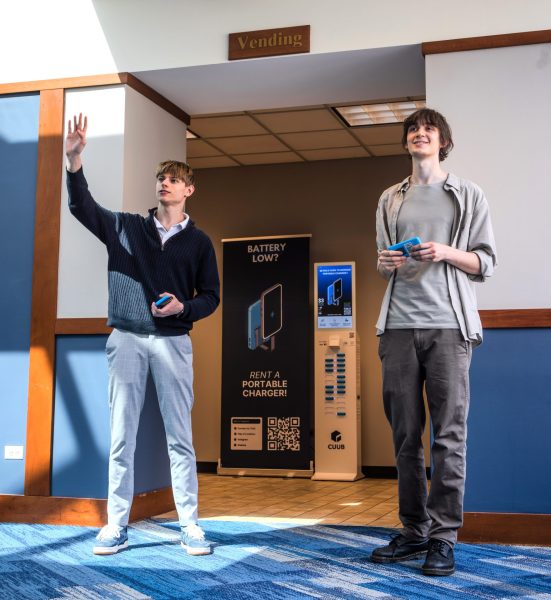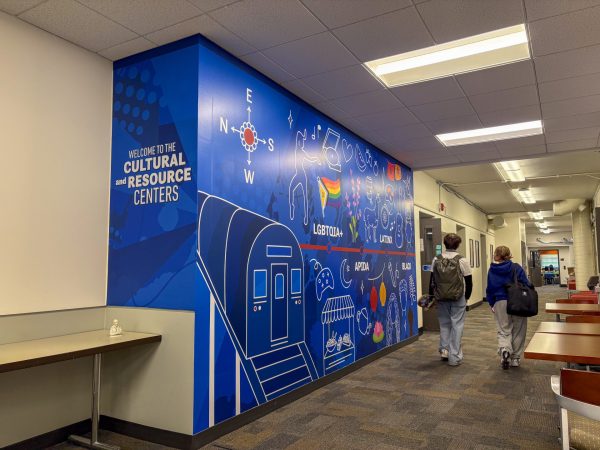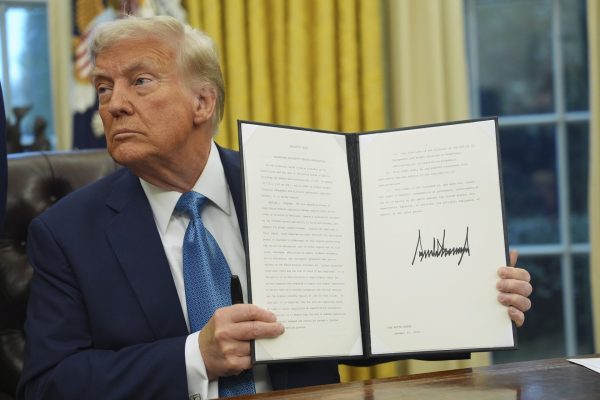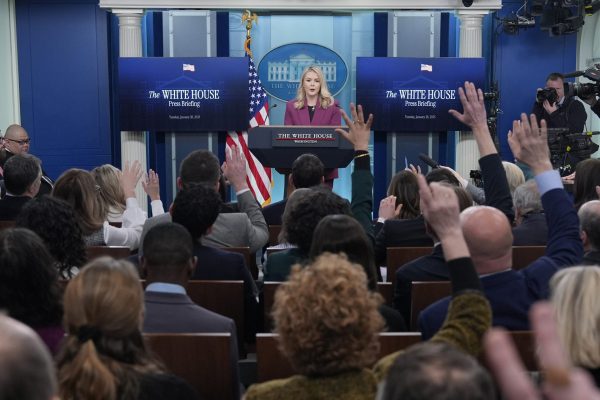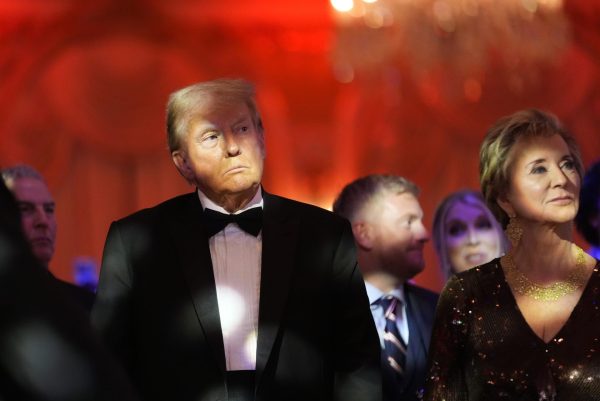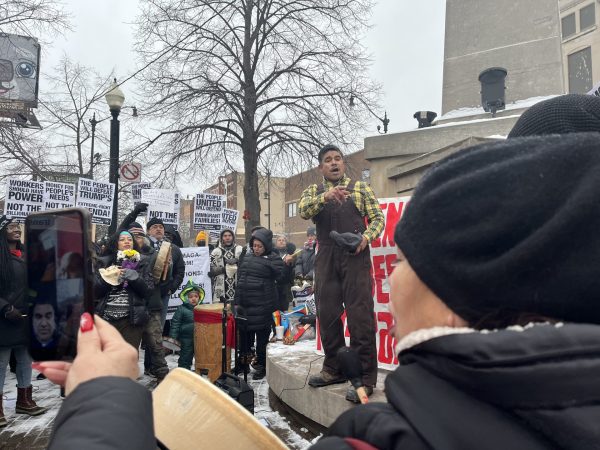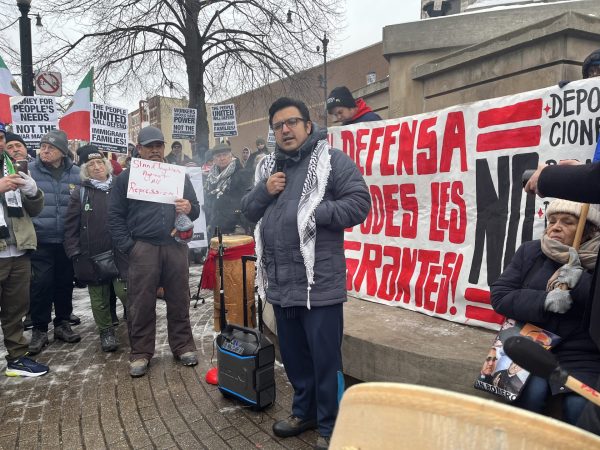Political Science professors discuss 2020 election in a virtual panel
People wait in line to early vote at the Loop Super Site in downtown Chicago, Sunday, Oct. 11, 2020. (AP Photo/Nam Y. Huh)
Less than two weeks ahead of election day, the Political Science Department held a panel Thursday to discuss pertinent issues of the upcoming 2020 presidential election. The event was held virtually and was moderated by Scott Hibbard, associate professor and political science chair.
Hibbard opened the panel with an opening statement in which he shared his general comments about the looming election. After the vice-presidential debate, he said, some might wonder if the two candidates “were living in the same country.”
“According to one, the pandemic is coming to an end and has been managed beautifully,” Hibbard said, referring to Vice President Mike Pence’s stance during the debate. “The economy is taking off, and the only danger is the prospect, the Venezuelan-style socialist system being imposed on a country by the far left. From the Democratic perspective, Covid-19 is not going away any time soon, thanks largely to a bungled response at the national level.”
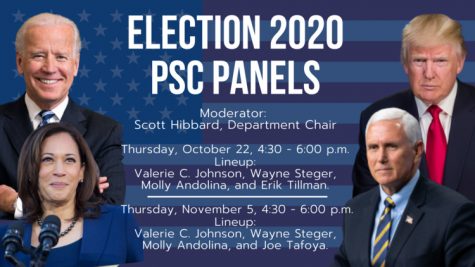
Hibbard continued to say that the Democratic perspective is that the real danger to the country is four more years of the current administration.
Political science professor Wayne Steger discussed how the 2020 election differs from 2016. Steger pulled most of his information from FiveThirtyEight, which provides a more statistical model of polling that aggregates from national polls and accounts for state polling in previous presidential elections.
In national polls, both Biden and Trump remained relatively steady from October to March. This differs from previous elections, Steger said, because candidates normally fluctuate in the polls, which may reflect increased polarization and durability of the American population. At this point in the election, most people have already made up their minds and are unswayed by events such as the presidential debates.
“They’re doing it almost like watching a World Series game where you’re there to root for your home team,” Steger said. “Much more so than to decide how you’re going to vote.”
In both the 2016 and 2020 elections, polling has reflected a sense of negative partisanship. In 2016, both parties seemed to vote for their candidate because they didn’t like the other party’s candidate. In 2020, there is a stronger sense of polarization surrounding President Donald Trump.
Molly Andolina, associate professor of political science, said that youth voter turnout is actually lower than it is often perceived to be. Referencing U.S. Census data, Andolina demonstrated that from 1972-2016, turnout for voters under the age of 29 was significantly lower than the older demographic. In 2018, youth voter turnout had a significant increase, but this was mirrored in the older demographics as well.
Andolina said that surveys show that the pandemic has re-energized younger voters because they have been disproportionately affected financially.
“They’re most likely, of any age group, to say that either they themselves or somebody in their family has either had reduced hours or lost a job,” Andolina said.
Increased emphasis on systemic racial injustice has dominated discourse in the 2020 election. Valerie Johnson, associate professor and former chair of the Political Science Department, spoke next with a discussion on the role of race in this election.
Johnson said that race permeates all aspects of American life and that the American experience has always been different for those of different racial backgrounds. The racial policy divide impairs the United States’ ability to address collective issues including affordable health care and the growing class divide, Johnson continued.
“Repairing the bridge to our democracy will require, no matter who is elected president, an honest assessment of the socio-economic and political consequences of our racialized history and a commitment to substantive versus symbolic solutions,” Johnson concluded.
Erik Tillman, associate professor of comparative politics, said that there has been a growing polarization of the two parties for decades.
In an analogy that compared American democracy to a play with three acts, Tillman said that the 2020 election might reflect a transition from the second to the third act. The outcome of the election could then determine whether the play is a “tragedy or a comedy.”
“We [have] reached a point where a growing share of partisans have come to see this election, and perhaps elections in general, as being more of a sort of an existential contest,” Tillman said.
Losing the election, Tillman said, could be concerning, as existential threats often lead to extreme actions in order to overcome them.
The Political Science Department will hold a second Election 2020 panel on Nov. 5 to readdress many of the topics discussed in the Oct. 22 panel.


